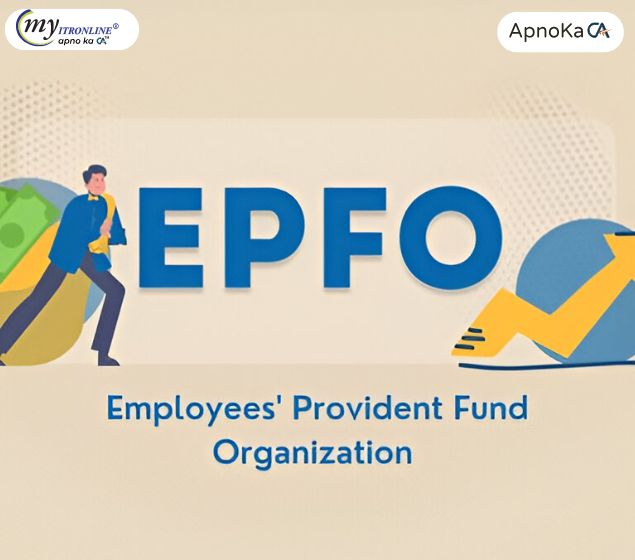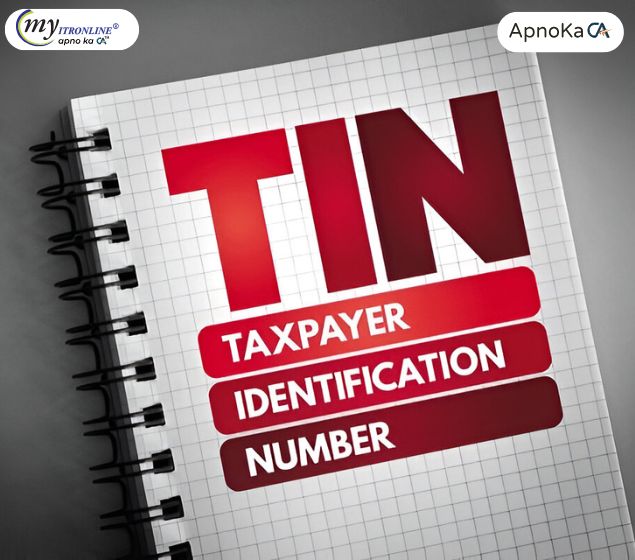Understanding the Financial Landscape of HNWIs
This blog provides an overview of High-Net-Worth Individuals (HNWIs) in India, defined as individuals with a net worth exceeding ₹5 crore. It discusses their investment preferences, including real estate, stocks, and alternative assets, and highlights their financial goals like wealth preservation, tax efficiency, and legacy planning. The blog also addresses challenges such as tax planning, risk management, and liquidity issues. Additionally, it covers key tax considerations, estate planning strategies, and philanthropic efforts, offering insights into effective wealth management for HNWIs.
.png )
Understanding the Financial Environment of High-Net-Worth Individuals (HNWIs) in India
High-net-worth individuals (HNWIs) are distinct in the world of personal finance since they are wealthy and have particular financial needs and obligations. HNWIs are defined as those in India who have a net worth of ₹5 crores or more. These people frequently possess substantial amounts of real estate, financial interests, and businesses. This tutorial will look at HNWIs' characteristics, wealth management practices, financial difficulties, and unique tax concerns.
High-Net-Worth Individuals (HNWIs): Who Are They?
An individual who has liquid assets exceeding a threshold, usually ₹5 crores in India, is classified as a High-Net-Worth Individual (HNWI). Investments such as equities, bonds, cash, and ownership of private businesses are included in this net worth, which mainly does not include personal residences.
HNWIs are often those with sizable inheritances, company owners, entrepreneurs, and top executives (CEOs, CFOs, Directors). To protect and increase their assets, they frequently go for upscale services like wealth management, private banking, and customized financial planning.
Types of People with High Net Worth
There are other divisions under the HNWI group according to the level of their wealth:
- Rich People: These people have a net worth that falls between ₹1 and ₹5 crore. Even though they are not considered HNWIs, they frequently approach this barrier.
- High-Net-Worth Individuals (HNWIs): These people fall within the ₹5–₹50 crore range in terms of net worth.
- Very-High-Net-Worth Individuals (VHNWIs): Those classified as Very-High-Net-Worth Individuals (VHNWIs) usually have a net worth between ₹50 crore and ₹500 crore. Their financial needs are typically more complicated.
- Ultra-High-Net-Worth Individuals (UHNWIs): People in this group have a net worth more than ₹500 crore. Multigenerational wealth and varied investment portfolios are common among UHNWIs.
The Investing Preferences of Affluent Individuals
Investment options that are often unavailable to regular investors are normally accessible to HNWIs. HNWIs have a few favored investment options that include:
- Real estate: Investing in real estate is still the major way for HNWIs to grow and preserve their wealth. Investments can be made in commercial, residential, or agricultural property.
- Venture Capital & Private Equity: Investing in startups, venture capital funds, and private equity is a common way for high net worth individuals (HNWIs) to support high-growth companies and earn substantial profits.
- Stock Market & Mutual Funds: High Net Worth Individuals (HNWIs) frequently make significant investments in the equity markets, both domestically and abroad, taking use of wealth managers' privileged knowledge.
- Alternative Investments: An HNWI's diversified portfolio frequently includes non-traditional assets including art, collectibles, hedge funds, and other assets. They search for assets that have no connection to the stock market.
- Foreign Investments: Affluent people frequently diversify their holdings abroad to lower their exposure to hazards related to the Indian economy and exchange rate volatility. They make investments in bonds, overseas stocks, and real estate.
Main Financial Objectives of HNWIs
Even while every person may have unique financial ambitions, the majority of HNWIs have a few shared objectives:
- Preservation of Wealth: HNWIs seek to shield their money from taxes, inflation, and downturns in the economy. Investment diversification is a crucial tactic.
- Tax Efficiency: One of the main priorities for high net worth individuals (HNWIs) is minimizing tax payments, which frequently calls for complex tax planning techniques.
- Legacy Planning: Another important objective for high net worth individuals (HNWIs) is to transfer wealth to the next generation in an effective manner. This generally includes estate planning, trust funds, and charity giving.
- Philanthropy: Using their fortune to benefit society via foundations, charities, and other channels, a large number of HNWIs are involved in philanthropic endeavors.
HNWIs' Challenges with Wealth Management
HNWI wealth management is intricate and multidimensional. Among the principal difficulties are:
- Tax Planning: Since Indian tax regulations are always changing, high net worth individuals (HNWIs) need to make sure they are in compliance and are utilizing all available legal tax savings opportunities.
- Estate Planning: To ensure a smooth transition, HNWIs must create trusts, wills, and other legal instruments in order to plan for the transfer of their wealth between generations.
- Risk management: HNWIs must safeguard their fortune against unpredictability in the market, geopolitical threats, and other areas. To reduce risk, this frequently calls for the strategic use of resources.
- Liquidity Management: HNWIs may experience liquidity issues despite having significant wealth. Investing all of your money in long-term assets like real estate may restrict your ability to take advantage of fresh possibilities.
- International Investments and Regulations: High net worth individuals (HNWIs) are required to keep up with global investment regulations, tax laws, and compliance standards as they diversify their holdings internationally.
HNWI Tax Benefits and Things to Take Into Account
The same tax regulations apply to HNWIs in India as they do to ordinary people, however because of their wealth, they have certain unique tax concerns to be aware of:
- Investment Tax: Depending on the holding period, investment gains are subject to taxation. If gains on equity shares surpass ₹1 lakh, long-term capital gains (LTCG) are subject to 10% taxation, whilst short-term capital gains (STCG) are subject to 15%.
- Real Estate Taxes: Depending on how long an item was kept, there are various capital gains taxes associated with selling real estate. Capital gains held for more than 24 months are subject to a 20% tax rate with indexation benefits.
- Dividend taxation: With the repeal of the Dividend Distribution Tax (DDT), dividends from stocks and mutual funds are now subject to taxation at the individual's respective income tax slab rate.
- Wealth Tax: Even with the repeal of the wealth tax in 2015, high net worth individuals (HNWIs) are still required to report their wealth for income tax purposes, especially when it comes to high-value assets like real estate, gold, or overseas investments.
- Philanthropic Deductions: Section 80G allows HNWIs to deduct their philanthropic contributions. Donations made to qualified organizations are eligible for a deduction of up to 100% of the donation amount, depending on the type of charity.
How HNWIs Can Efficiently Manage Their Taxes
For HNWIs to safeguard their wealth and optimize their savings, effective tax planning is essential. Among the tactics are:
- Investing in Tax-Free Bonds: To ensure consistent income free from tax obligations, high net worth individuals (HNWIs) can purchase tax-free bonds issued by the government or organizations sponsored by the government.
- Tools for Estate Planning: Using legal entities such as Hindu Undivided Families (HUFs) and establishing trusts can help lower tax obligations for family members.
- Maximizing Deductions: HNWIs ought to investigate every deduction available under several headings, including 80C, 80D, 80G, and others. There are significant tax advantages when it comes to medical insurance, donations, and retirement fund contributions.
- Utilizing Capital Gains Exemptions: Capital gains tax can be lowered or eliminated by reinvesting proceeds in residential real estate under Section 54's exemptions.
In conclusion
Financial experts that are knowledgeable about tax planning, estate planning, and wealth management are needed to handle the particular challenges faced by high-net-worth individuals (HNWIs). HNWIs can retain their financial stability while boosting their wealth by managing risk, making strategic investments, and reducing taxes effectively.
For tailored tax-saving advice and wealth management services, contact myITRonline today to help you manage your wealth and achieve your financial goals effectively.
FILING YOUR INCOME TAX RETURN F.Y 2024-25 (A.Y. 2025-2026) WITH MYITRONLINE
The income tax filing deadline is right around the corner. If you haven’t filed yet, do it today with Myitronline! Avoid last minute rush and file your tax return today on MYITRONLINE in Just 5 mins.(www.myitronline.com)
If you are looking for eCA assistance to file your income tax return/ GST, you can opt for MYITRONLINE eCA assisted plan starting
Upload Salary Individual Form-16
If you have any questions with filing your tax return, please reply to this mail. info@myitronline.com OR call 9971055886,8130309886.
Note-All the aforementioned information in the article is taken from authentic resources and has been published after moderation. Any change in the information other than fact must be believed as a human error. For queries mail us at marketing@myitronline.com
Krishna Gopal Varshney
An editor at apnokacaKrishna Gopal Varshney, Founder & CEO of Myitronline Global Services Private Limited at Delhi. A dedicated and tireless Expert Service Provider for the clients seeking tax filing assistance and all other essential requirements associated with Business/Professional establishment. Connect to us and let us give the Best Support to make you a Success. Visit our website for latest Business News and IT Updates.
Leave a reply
Your email address will not be published. Required fields are marked *Share this article
Krishna Gopal Varshney, Founder & CEO of Myitronline Global Services Private Limited at Delhi. A dedicated and tireless Expert Service Provider for the clients seeking tax filing assistance and all other essential requirements associated with Business/Professional establishment. Connect to us and let us give the Best Support to make you a Success. Visit our website for latest Business News and IT Updates.
View articles














.jpg
)





.jpg
)
.jpg
)
.jpg
)